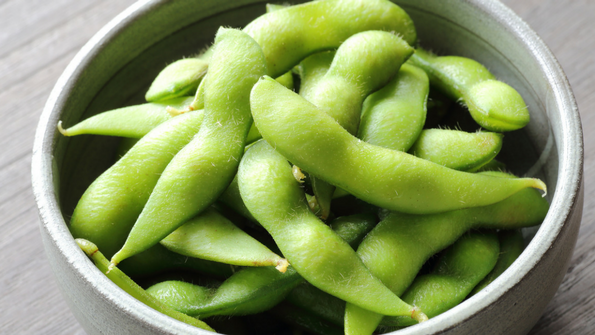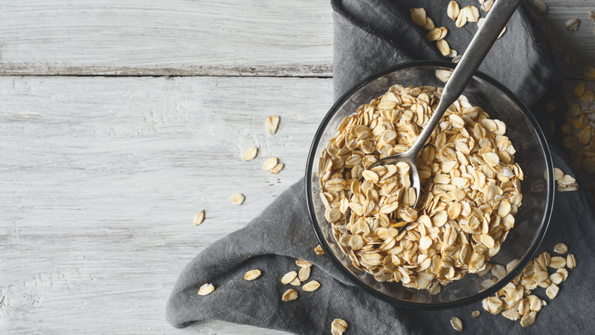Affordable & nutritious: 10 plant-based foods with health power
- Eating Well with Rochelle
- Dec 21, 2019
- 5 min read
Eating right doesn’t have to equal mundane meals and slim wallets. And this list of the ten healthiest—and cheapest—plant-based foods proves just that. From leafy greens and grains to fruit and hearty vegetables, these ingredients guarantee nutritious, budget-friendly meals that will satisfy even the hungriest of appetites. So say good-bye to boring breakfasts and flavorless side dishes and get in the kitchen with these versatile recommendations. They provide endless options for healthy, money-saving meals that will fuel your body and save your wallet.

Pumpkin Seeds
When it comes to buying seeds and nuts, you may experience some sticker shock. Stop struggling between health and savings, and pick up a bag of nutritious, budget-friendly pumpkin seeds.
Cost: $0.30 per ¼-cup serving ($4.25 per pound).
Benefits: Pumpkin seeds—or pepitas, as they’re called when they’re shelled—pack a lot of health benefits for their little size. Aside from offering a high amount of manganese, just ¼ cup of pepitas contains nearly 50 percent of your daily need for magnesium—important for muscle, heart and bone health. That same serving size is high in heart-healthy fats and adds almost 10 grams of protein to your diet.

Carrots & Cauliflower
With a combined résumé that’s pretty stunning, these two powerhouse veggies are vital when it comes to filling your plate and your wallet.
Cost: 0.20 to $0.50 per cup ($0.98 to $2.48 per pound).
Benefits: One cup of carrots alone surpasses your daily need of vitamin A. Throw in the various antioxidants (beta-carotene being the most well-known, and a precursor to vitamin A), and you’re already looking at one of the healthiest foods you can buy. Add a cup of cauliflower to up the ante. Just 1 cup contains 73 percent of your daily vitamin C needs; plus it’s been shown to decrease the risk of various cancers.

Pinto Beans
Whether dried and cooked or used straight from the can, heart-healthy pinto beans are one of the cheapest protein sources you can buy.
Cost: $0.04 per ½-cup cooked serving from dried beans ($0.80 per pound dried beans) and $0.20 per ½-cup serving from canned beans ($0.64 per pound canned beans).
Benefits: Not surprisingly, pinto beans are packed with fiber. Just ½ cup of cooked beans gives you more than 30 percent of your daily recommended intake for dietary fiber. Additionally, pinto beans contain high levels of folate, magnesium and potassium, all of which contribute to heart health. And, being high in protein and iron makes pinto beans a favorable plant-based alternative to red meat.

Butternut Squash
This hourglass-shaped fruit (yes, it’s a fruit) has taken a backseat to summer squash for far too long. The butternut is a winter squash that offers more benefits and versatility than is often thought.
Cost: $0.40 per 1-cup serving ($1.31 per pound).
Benefits: Although some produce hide their nutrients, butternut squash isn’t afraid to flaunt them. Its brightly colored orange flesh indicates the presence of beta-carotene, which we know to fight certain cancers and protect eye health. Beyond that, this gourd adds a healthy amount of fiber and vitamins A and C to your diet, which in combination contribute to a strong immune system, bone and tissue health and healthy blood sugar levels.

Kale
This once rare but now beloved veggie can be found on tables and menus everywhere. The popularity of this leafy green has caused prices to drop, and you should take advantage of its nutrition prowess.
Cost: $0.11 per 1-cup serving ($1.60 to $2.00 per pound).
Benefits: Kale contains more lutein, a type of carotenoid important for eye health, than any other produce. It’s also high in manganese and vitamins A, C and K, all of which contribute to kale’s health benefits—such as lowering your risk of some cancers, reducing your risk of blood clots and boosting your bone and tissue health. Just 1 cup of loosely packed kale contains 20 to 25 percent of your daily vitamin C needs.

Frozen Edamame
High in fiber and protein and low in unhealthy fats, soybeans are an easy and healthy way to get more bang for your buck. Not many protein sources render as strong of a nutritional profile, which lands edamame on this list.
Cost: $0.34 per ½-cup serving ($2.72 per pound) of frozen, shelled edamame.
Benefits: Edamame contains a long list of vitamins and minerals (some rarely heard of), with the most notable being iron, manganese, B vitamins and vitamin K. Additionally, edamame is a complete protein, which means it contains all of the nine essential amino acids, a rarity in plant protein sources.

Kiwifruit
This little fruit packs flavor, nutrition and a gorgeous green hue inside an unusual fuzzy peel. Simply slice in half and scoop out flesh with a spoon, or peel and slice, or even eat it sliced with the peel on (wash it first, of course) for a quick, healthful snack.
Cost: $0.53 per fruit ($3.56 per pound).
Benefits: An incredible source of vitamin C, kiwi is a good option when oranges become mundane. Just one kiwi serves up a hefty amount of dietary fiber and more than 30 percent of your daily needs for vitamin K. This small green fruit, speckled with tiny seeds, has been found to benefit cardiovascular health and respiratory problems such as asthma, shortness of breath and coughing.

Marinara Sauce
Although it may be surprising to see a sauce on this list, marinara has earned its place. Made primarily of whole foods, including tomatoes and spices, marinara contains a long index of antioxidants. But be sure to check labels and look for marinara with the fewest grams of added sugars and sodium.
Cost: $0.32 per ½-cup serving ($1.92 per 24-ounce jar).
Benefits: Tomatoes are naturally high in the antioxidant lycopene—thought to have cancer-prevention benefits—and when cooked, lycopene becomes more readily available to absorb. Marinara also provides a good amount of iron and vitamin C.

Oats
A quick, nutritious breakfast, old-fashioned oats offer a myriad of health benefits in just one bowl. This wallet-friendly whole-grain can be enjoyed sweet or savory, and is a great foundation for a healthful meal or snack.
Cost: $0.07 per ½-cup serving ($1.09 per pound).
Benefits: Naturally gluten-free (but often processed in facilities where gluten-containing grains are also processed), oats deliver almost 10 percent of your recommended daily fiber needs in just ½ cup cooked, along with 3 grams of protein. Also, the daily intake of unrefined, concentrated sources of fiber in oats has been found to reduce the risk of cardiovascular disease, type 2 diabetes and breast cancer. Now that’s a healthy carbohydrate!

Quinoa
Although this seed has been around since 1200 AD, quinoa took the world by storm just a few years ago, thanks to its incredible nutrient profile, credited with strengthening warriors through the ages.
Cost: $0.21 per ¾-cup cooked serving ($2.14 per pound).
Benefits: These tiny seeds provide 8 grams of complete protein and nearly 60 percent of your daily manganese needs in each ¾-cup cooked serving, making it an ideal plant-based protein.
It contains essential fatty acids and heart-healthy fats, as well as anti-inflammatory benefits—proving that good things do, after all, come in small packages.
Disclaimer: This post (or portions of this post) was provided by New Hope Network. I am a member of the New Hope Influencer Co-op, a network of health and wellness bloggers committed to spreading more health to more people.
Author Credit: Lauren Grant
Art Credit: New Hope Network








Comments